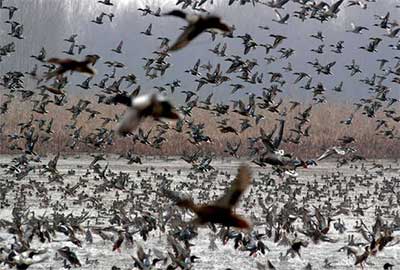Wildlife trafficking of exotic birds on india Bangladesh border
Wildlife trafficking is emerging as a dangerous form of organized crime in india which is a severe threat to India's biodiversity and its flora fauna. In their continuing effort to curb trafficking of wildlife, Border Security Force (BSF) personnel of the South Bengal Frontier recovered 32 exotic birds being smuggled across the international border between India and Bangladesh in North 24-Parganas. The birds, being smuggled from Bangladesh to India, were stuffed in two cages. The birds have been handed over to the director of the Alipore Zoo through the Customs department in Petrapole.
Nearly a 100 exotic birds have been seized by the BSF along the Indo-Bangladesh border over the last few weeks. These birds are trafficked to markets in Kolkata and elsewhere and sold to collectors at high prices.
Illegal Wildlife trade in india :
Over the years illegal wildlife trade has emerged as a form of Organised Transnational Crime that has threatened the existence of many wild species across the globe. In India, it includes diverse products including mongoose hair; snake skins; Rhino horn; Tiger and Leopard claws, bones, skins, whiskers; Elephant tusks; deer antlers; shahtoosh shawl; turtle shells; musk pods; bear bile; medicinal plants; timber and caged birds such as parakeets, mynas, munias etc. A large part of this trade is meant for the international market and has no direct demand in India.
The global illegal trade in wildlife is worth upto US$ 19 billion annually, and is the fourth largest illicit market after drugs, counterfeit, and human trafficking.
India is among the top 20 countries for the illegal wildlife trade, according to data analysed by TRAFFIC. Chennai and Mumbai airports act as key destinations and origin points for traffickers, according to a report published by USAID ROUTES (Reducing Opportunities for Unlawful Transport of Endangered Species) Partnership and TRAFFIC in May 2020.
Efforts to curb illegal Wildlife trade in india :
India has a strong legal and policy framework to regulate and restrict wildlife trade. Trade in over 1800 species of wild animals, plants and their derivative is prohibited under the Wildlife (Protection) Act, 1972.
India is also a member of the CITES (Convention on International Trade in Endangered Species of Fauna and Flora) since 1976. CITES is an international agreement between governments that aims to ensure that international trade in specimens of wild animals and plants does not threaten their survival. CITES works by subjecting international trade in specimens of selected species listed on Appendices to certain controls.
A campaign to protect "highly endangered" animals -Tiger, Pangolin and Star Tortoise- hunted for illegal trading internationally, has been launched by the Ministry of Environment at major airports in the country on May 22, 2020. The campaign 'Not all animals migrate by choice' has been launched ahead of the International Day of Biological Diversity.
The Wildlife Crime Control Bureau has been mandated to collect and collate intelligence related to organized wildlife crime activities and to disseminate the same to State and other enforcement agencies for immediate action so as to apprehend the criminals; to establish a centralized wildlife crime data bank; co-ordinate actions by various agencies in connection with the enforcement of the provisions of the Act; assist foreign authorities and international organization concerned to facilitate co-ordination and universal action for wildlife crime control; capacity building of the wildlife crime enforcement agencies for scientific and professional investigation into wildlife crimes and assist State Governments to ensure success in prosecutions related to wildlife crimes; and advise the Government of India on issues relating to wildlife crimes having national and international ramifications, relevant policy and laws. It also assists and advises the Customs authorities in inspection of the consignments of flora & fauna as per the provisions of Wild Life Protection Act, CITES and EXIM Policy governing such an item.








